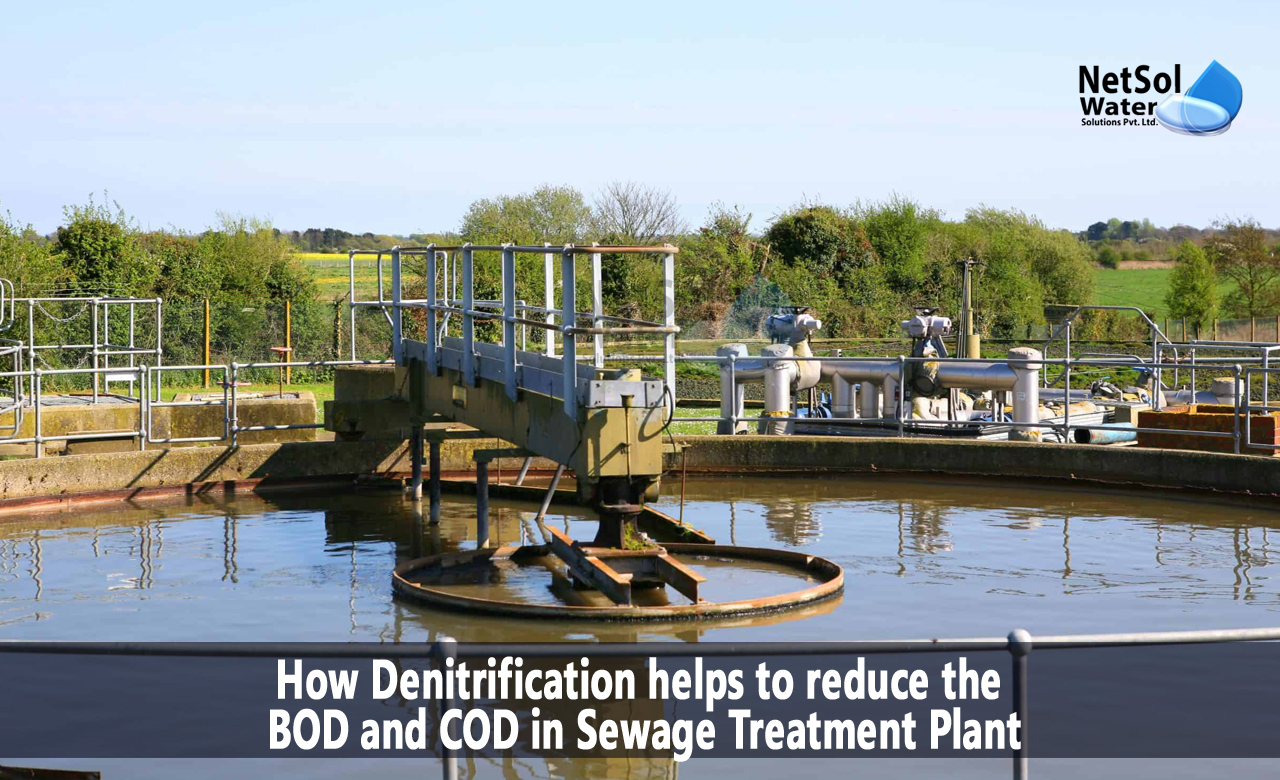How Denitrification helps to reduce the BOD and COD in STP Plant?
Sewage treatment plants (STPs) are essential in maintaining environmental health and safety by treating sewage to remove contaminants before discharging it into natural water sources. One of the primary objectives of an STP is to reduce the levels of organic matter in the sewage, which is typically measured in terms of biochemical oxygen demand (BOD) and chemical oxygen demand (COD).
Dinitrification is an effective sewage treatment process that helps to reduce the BOD and COD levels in STPs. Now, let us discuss the dinitrification process, its mechanisms, and its importance in sewage treatment.
What is Dinitrification?
Dinitrification is a specialized form of biological nitrogen removal in which nitrate (NO3-) is converted into nitrogen gas (N2) under anaerobic conditions. Dinitrification is achieved by the activity of specific bacteria, which use nitrate as a terminal electron acceptor in the absence of oxygen. In the process, nitrate is reduced to nitrite (NO2-), then to nitric oxide (NO), then to nitrous oxide (N2O), and finally to N2.
The Dinitrification Process:
Dinitrification is a complex process that involves the activity of several bacterial species. The overall process can be divided into three stages:
Stage 1: Denitrification.
During the denitrification stage, bacteria utilize organic carbon as a source of energy to convert nitrate into nitrite. This process is carried out by facultative bacteria that can grow under both aerobic and anaerobic conditions. The reaction can be represented as follows:
C6H12O6 + 4NO3- → 6CO2 + 2N2 + 6H2O
In this equation, organic carbon is represented by glucose (C6H12O6). Nitrate is reduced to nitrogen gas (N2), which is released into the atmosphere. Carbon dioxide (CO2) and water (H2O) are the by-products of this reaction.
Stage 2: Nitrite Reduction.
During the nitrite reduction stage, nitrite is reduced to nitric oxide (NO). This process is carried out by facultative and obligate anaerobic bacteria. The reaction can be represented as follows:
2NO2- → 2NO + O2
In this equation, nitrite is represented by NO2-. Nitric oxide is a highly reactive molecule that can participate in several other reactions in the dinitrification process.
Stage 3: N2O Reduction.
During the N2O reduction stage, nitric oxide is further reduced to nitrous oxide (N2O). This process is carried out by denitrifying bacteria that are obligate anaerobes. The reaction can be represented as follows:
2NO + N2O → 3N2
In this equation, nitric oxide is represented by NO and nitrous oxide is represented by N2O. The final product of this reaction is nitrogen gas (N2).
Importance of Dinitrification in Sewage Treatment:
Dinitrification is an essential process in sewage treatment as it helps to reduce the levels of BOD and COD in the sewage. Organic matter in sewage serves as a source of energy for bacteria, which can lead to depletion of dissolved oxygen in the water.
Dinitrification helps to reduce the levels of nitrate in the water, which in turn reduces the demand for dissolved oxygen in the water. This process also helps to reduce the levels of nitrogen in the sewage, which can be a source of environmental pollution if released into natural water sources.
Conclusion
Dinitrification is a specialized form of biological nitrogen removal that helps to reduce the levels of BOD and COD. Denitrification plays an important role in the treatment of sewage in an Sewage Treatment Plant.
Leading manufacturer of sewage treatment plants in India.
Netsol Water is the leading manufacturer, supplier, and exporter of a quality selection of water treatment, and wastewater treatment products in India, by using advanced sewage treatment methods.
RO plants, water softeners, ETPs, STPs, DM plants, AMC, O&M, Ultra filtration, UV, Ozonation, ZLD plants, Anoxic tanks, and other goods and services are available from us. We also provide services to businesses in sectors including automotive, pharmaceutical, textile, pulp & paper, beverages, refineries, schools, hospitals, office buildings, and hotels, among others.
Call us at +91 9650608473 or email at enquiry@netsolwater.com for further information.



